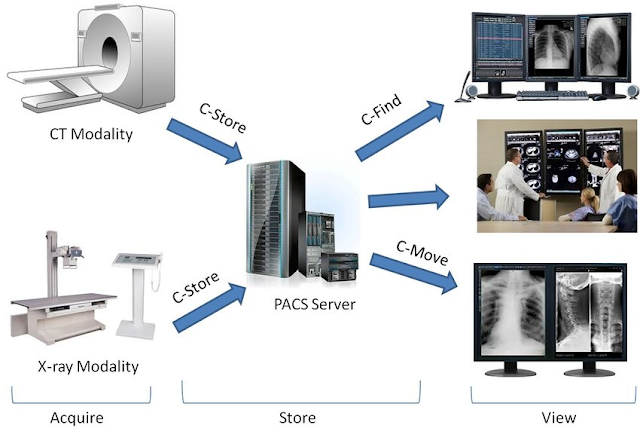What Medical Professionals Need to Know About HIPAA-Compliant Cloud Storage Solutions?
As medical practices increasingly go digital, securely storing patient health records is more important than ever.
Medical
professionals have a duty under HIPAA regulations to protect sensitive patient
data.
Choosing
HIPAA-compliant image cloud storage solutions is key. This guide covers what
doctors, nurses, and healthcare administrators need to know.
Why does HIPAA Compliance Matters?
HIPAA,
or the Health Insurance Portability and Accountability Act, is a US law that
sets national standards for storing and sharing sensitive patient information,
called protected health information (PHI).
Effects
of non-compliance include:
● Fines up to $50,000 per violation
● Disciplinary actions and loss of reputation
● Legal action and settlement costs in a data
breach
Staying
fully HIPAA compliant when going digital with patient records will minimize
these risks and build patient trust.
Key Requirements for
HIPAA-Compliant Cloud Storage
Cloud
storage services that want to provide HIPAA-compliant
image cloud storage and backup options for the medical sector must fulfill
stringent HHS security protocols. Here are the core requirements:
● Access controls limiting PHI access to authorized personnel only and monitoring
systems for unauthorized access
● Audit controls that record activity for review and analysis in case of a breach
● Integrity controls to prevent unauthorized creation, alteration or deletion of PHI
records
● End-to-end encryption of data in transit and at rest
● Contingency disaster recovery plans with
backups stored in geographically separate facilities
● Rigorous third-party security assessments and validation
These
combine to minimize the risk of data breaches and ensure proper use of
sensitive patient information.
6 Must-Have Capabilities in a HIPAA Cloud Storage Service
Here are
key criteria to evaluate when comparing providers of HIPAA-compliant cloud storage solutions for your practice:
- HIPAA compliance validation with up-to-date assessments from
independent auditors
- SOC 2
certification
showing security, availability and confidentiality of infrastructure and
internal processes
- Granular access
permissions
to restrict PHI to authorized staff based on role
- End-to-end AES
256-bit encryption securing data in transit and at rest without exceptions
- Audit trail
capturing
for visibility into data access, plus alerts on suspicious activity
- Geographically dispersed backups prevent data loss from server failure or
natural disaster
Microsoft
Azure, Google Cloud, and IBM Cloud are examples of leading HIPAA-compliant
cloud storage providers with these controls.
Cloud Storage Considerations for
Medical Images
Storing
medical images comes with distinct challenges given large file sizes. Here are
key factors when evaluating HIPAA-compliant
image cloud storage:
● Bulk image uploads and fast downloads for efficient transfer
● Unlimited storage scalability cost-effectively accommodating growth
● Global CDN for fast delivery of medical images integrated with compatible viewers
● Dedicated instance options preventing multi-tenancy risks
Additionally,
tightly integrated radiology-specific workflows around image interpretation,
markup, and physician collaboration can drive efficiencies.
Below is
a comparison of leading purpose-built medical image management platforms.
These
combine deep integration with PACS imaging systems and radiology workflows with
HIPAA-validated cloud security and storage.
Steps to HIPAA Compliance for
Cloud Data Storage
If your
medical practice plans to implement cloud data storage or backup for PHI, be
sure to take these steps:
- Select HIPAA compliant solutions after reviewing security and storage
safeguards
- Conduct risk
analysis
mapping data flows to security controls
- Enter Business
Associate Agreement with the cloud provider(s)
- Adapt internal
policies
for cloud storage, access permissions and endpoint security
- Train staff on proper practices working with PHI in the cloud
Upon
launch, be sure to continually monitor
and audit use of cloud storage systems housing protected health data.
Promptly address any suspicious access or policy violations.
By
understanding HIPAA's rigorous data protections and translating these into
careful product selection backed by ongoing vigilance, medical professionals
can confidently unlock the benefits of the cloud.
Patients
trust doctors with their most sensitive health data. Building robust digital
workflows fully compliant with HIPAA data storage regulations helps honor and
sustain that trust.






Comments
Post a Comment